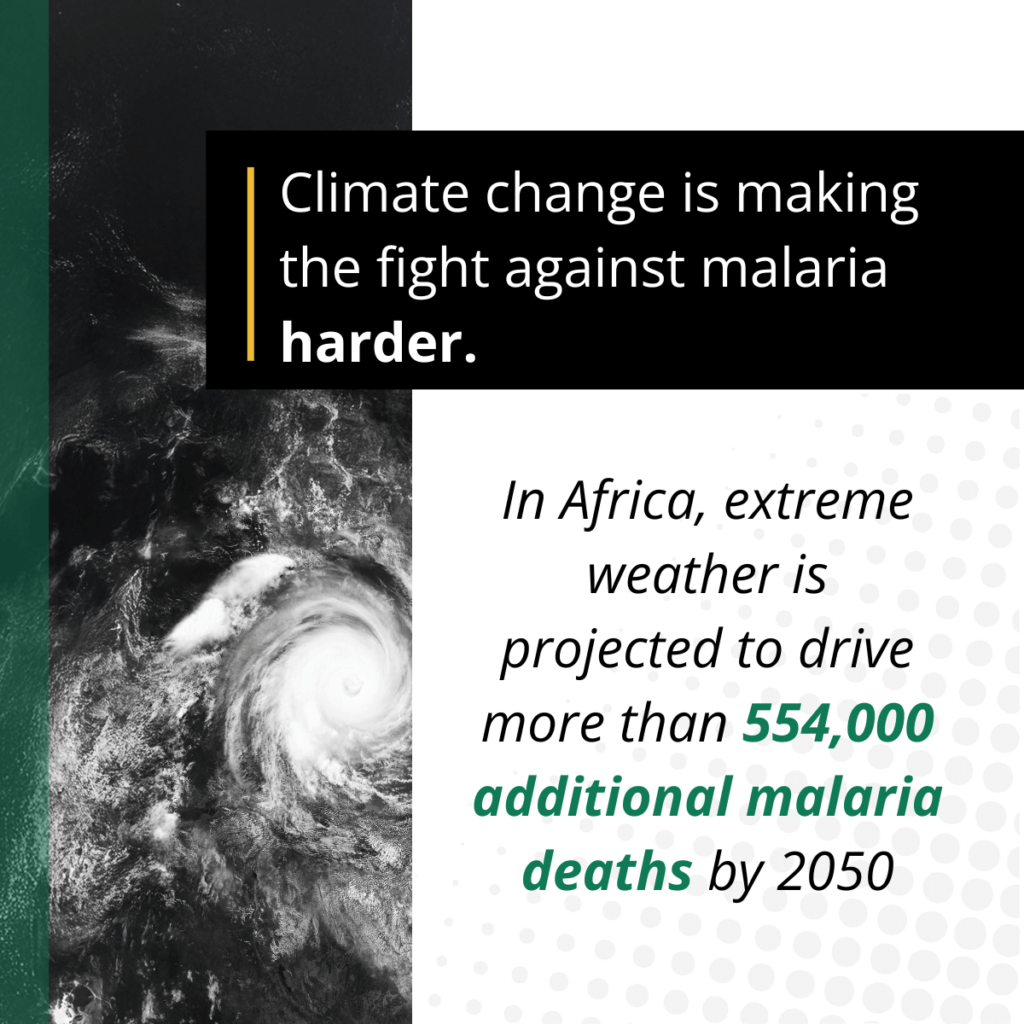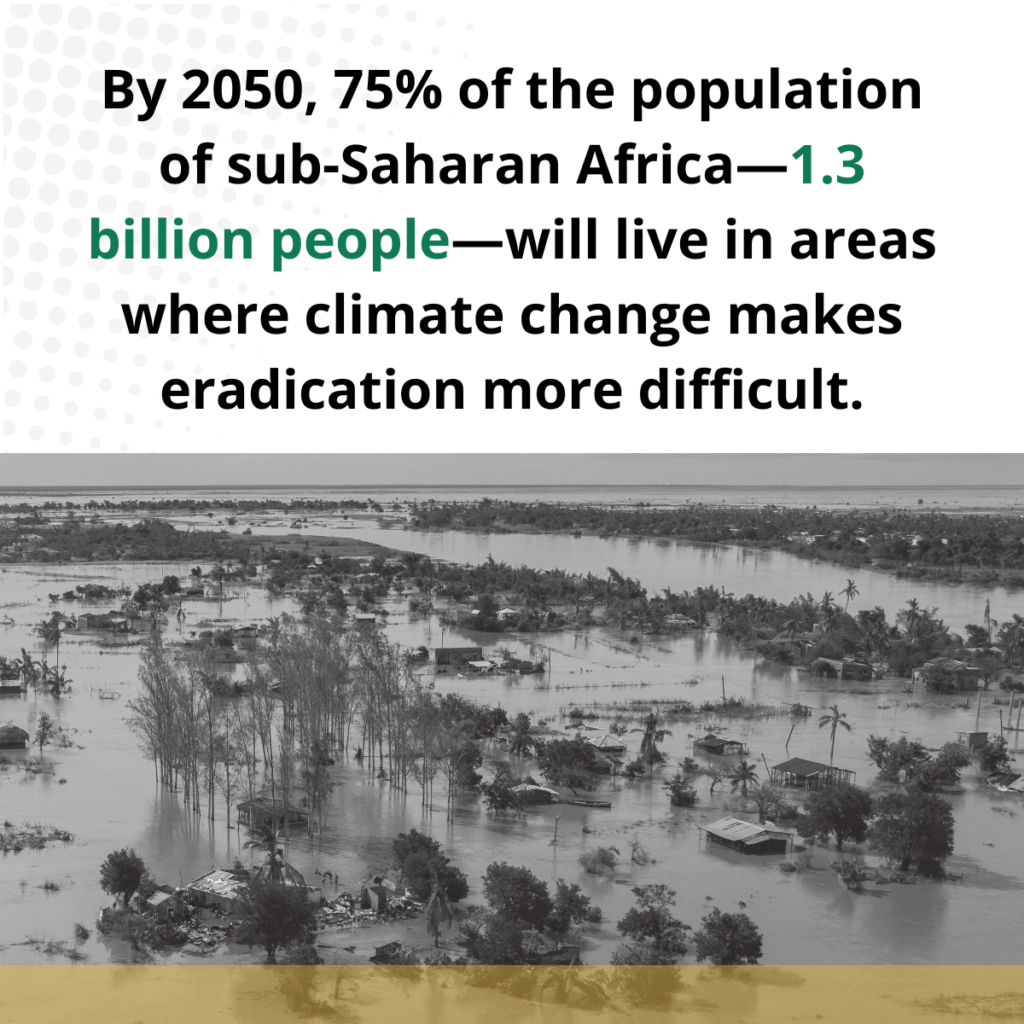Impacts du climat sur le paludisme en Afrique

Pour mieux comprendre comment le changement climatique affectera le fardeau du paludisme en Afrique, le Malaria Atlas Project (MAP) et le Boston Consulting Group ont développé un modèle climatique pour prédire les changements dans les événements météorologiques extrêmes et pour estimer leur impact sur les décès dus au paludisme jusqu’en 2049. La modélisation s’appuie sur de multiples scénarios et modèles numériques, ainsi que sur les principales données du secteur de l’assurance sur les risques d’inondation. Il s’agit de la première et de la plus rigoureuse analyse d’impact quantitative à ce jour. Le rapport et les principales conclusions sont disponibles ici.
À la suite du lancement récent du Rapport mondial sur le paludisme 2024 de l’OMS, les conclusions du rapport « Impacts du climat sur le paludisme en Afrique » constituent un puissant appel à l’action, soulignant le besoin urgent d’investir dans les programmes de lutte contre le paludisme, en particulier face à des menaces émergentes telles que le changement climatique.
Messages clés du rapport
- Le coût humain : Le changement climatique pourrait entraîner plus de 550 000 décès supplémentaires dus au paludisme en Afrique entre 2030 et 2049, réduisant ainsi à néant les progrès durement acquis dans la lutte contre le paludisme.
- L’urgence d’agir : Tout retard dans l’éradication entraînera une augmentation des coûts humains et financiers ; il est donc essentiel d’investir rapidement pour réaliser des progrès durables.
- Appel à l’innovation : Des outils résistants au climat et des systèmes de santé adaptables sont essentiels pour contrer les effets des conditions météorologiques extrêmes.
- L’intégration est essentielle : Lier l’éradication du paludisme aux efforts d’adaptation au climat permet de renforcer les systèmes de santé et de sauver des vies.


Le rapport « How the climate emergency is shaping the response against HIV, tuberculosis and malaria, and why global health must adapt » (Comment l’urgence climatique façonne la réponse au VIH, à la tuberculose et au paludisme, et pourquoi la santé mondiale doit s’adapter) de la fondation « Right to Health » de Salud por Derecho met également en évidence l’impact du changement climatique sur les principales maladies mondiales.
